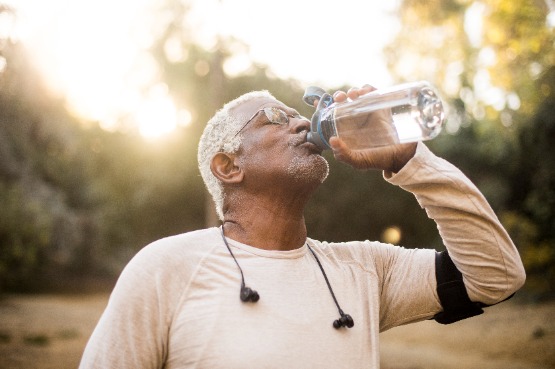Good fats and bad fats in the diet: what’s the difference?
Fats are an important part of your diet. They’re a good source of energy and are essential for good health. But if you eat too much of certain kinds of fat, it can be unhealthy. So, it’s important to find a healthy balance in the fats you eat. Here, I’ll explore what the difference is between good and bad fats in our diets.

Why do I need to eat fat?
Fats are an important part of your diet. Some types of fat have vital roles in your body, and you need to get these from your food. This is because your body can’t make them itself.
Healthy fats include essential fatty acids such as omega 3. Below are some important reasons why you should eat healthy fats.
- Your body needs some fat to absorb certain vitamins in food that are important for your health – such as vitamins A and D.
- Your body uses some fats to make the outer layer (membrane) of your body’s cells.
- Fats are also needed to make hormones and other important chemicals in the body.
- They can help to keep your heart healthy.
What are the different types of fats?
There are many different types of fats – and some are healthier than others.
Saturated fat
Saturated fat is usually (but not always) solid at room temperature and comes from animal sources, such as dairy or meat. If you eat too much saturated fat it can cause blockages in the blood vessels leading to your heart. Saturated fat is found in larger amounts in the following foods:
- fatty cuts of meats, such as sausages and pork pies
- full-fat dairy products, like butter, ghee, and lard
- pastries, cakes, and biscuits
- palm oil and coconut oil
Trans fat
Trans fats are in processed foods such as:
- fried fast food
- cake
- biscuits
Unsaturated fats
These are usually found in plant based and less processed foods such as:
- monounsaturated fats (for example, olive oil, rapeseed oil, almonds, unsalted cashews and avocado)
- polyunsaturated fats (for example, sunflower oil and vegetable oil, walnuts, sunflower seeds, and oily fish)
What are bad fats?
With most fats – whether they’re bad for you depends on how much of it you eat, and in what type of food it’s found. For example, too much saturated fat can be bad for you as it may increase the levels of low-density lipoprotein (LDL) cholesterol in your blood. This may increase your chance of developing heart disease or having a stroke.
Eating moderate amounts of saturated fats in less processed foods, such as natural yoghurt, has some health benefits. This is because yoghurt also contains protein and calcium, which are beneficial for your health. But if you consume saturated fats from cakes and pastries you are not getting nutritional benefits.
If you eat too much trans-fat, you may increase your risk of heart disease. A good way to reduce the amount of trans fats in your diet is to eat less takeaways and processed food. Try to cook from scratch using fresh ingredients when you can.
What are good fats?
Unsaturated fats are a healthier choice. This is because unsaturated fats such as olive oil and oily fish are associated with health benefits. They contain anti-inflammatory chemicals and can provide you with your essential fatty acids to help support your brain and heart health.
Unsaturated fats may also lower the level of bad (LDL) cholesterol and increase the amount of good (HDL) cholesterol in your blood. This may help to protect you from heart disease and stroke.
The Mediterranean dietary pattern is often considered to be one of the healthiest in the world. One of the reasons for this is that it is relatively low in saturated fats, but instead focuses more on unsaturated olive oil and oily fish.
How much fat should I eat?
Fat is a good energy source – it gives you more than twice the energy as the same amount of protein or carbohydrate. But this means you need to be careful about how much of it you eat. If you eat too much fat, you’ll probably put on weight. Being overweight or obese is associated with some serious long-term health problems, such as type 2 diabetes and high blood pressure.
Most people in the UK eat more than the recommended amount of fat. But, according to guidelines:
- men should have no more than 95g of fat (of which 30g is saturated fat) per day
- woman should have no more than 70g of fat (of which 20g is saturated fat) per day
Only about a third of this should be saturated fat – the rest should be unsaturated fat.
Can food labels help?
You can see how much fat you eat by checking the labels on the foods you buy. The amount of total fat in the food is listed, along with the amount of saturated fat. Foods that have less than 3g of fat per 100g of food are low-fat foods. Foods with less than 1.5g of saturated fat per 100g of food are considered low in saturated fat.
Many companies now use a colour-coding system using traffic light colours (red, amber, and green) to show the amount of fat, sugar, salt, and calories in foods. If a food is low in fat or saturated fat, it is green.
How can I reduce my fat intake?
Try these tips to get the right amount and types of fats in your diet.
- Choose lean meat or alternatives to meat, such as beans, tofu, or lentils. If you do have fatty meat, cut off any fat you can see.
- Use low-fat ways of cooking, such as grilling, steaming, or baking foods.
- When you do cook with fat, use an unsaturated fat, such as olive or rapeseed oil.
- If you eat fish, eat two portions each week. This should include at least one oily fish, such as mackerel or salmon. This will help you get enough omega 3. If you’re vegetarian or vegan, you may need a supplement.
- If you need a snack, choose a handful of unsalted nuts rather than biscuits or crisps.
Whilst it’s important to be aware of how much saturated fat you are consuming, there is no need to fear all types of fat. In fact, it’s essential that you consume enough omega 3 (found in oily fish and algae). Aiming to follow a Mediterranean style diet will help you to eat more unsaturated, healthy fats.
The Bupa weight management plan is designed for people with a BMI over 30 (or over 27 if you have a weight related condition). The plan is designed to empower you to achieve and maintain a healthy weight in a sustainable way.
Discover more about our medicated weight loss plan.
-
Sources Sources
- Fat. British Association of Dietitians. Bda.uk.com, accessed 4 September 2023
- Omega 3. British association of Dietitians. Bda.uk.com, accessed 4 September 2023
- Trans fats. British Association of Dietitians. Bda.uk.com, accessed 4 September 2023
- Calcium. British Association of Dietitians. Bda.uk.com, accessed 4 September 2023
- Protein. British Association of Dietitians. Bda.uk.com, accessed 4 September 2023
- Heart health. British Association of Dietitians. Bda.uk.com, accessed 4 September 2023
About our health information
At Bupa we produce a wealth of free health information for you and your family. This is because we believe that trustworthy information is essential in helping you make better decisions about your health and wellbeing.
Our information has been awarded the PIF TICK for trustworthy health information. It also follows the principles of the The Information Standard.

More diet and nutrition articles
Did you find our advice helpful?
We’d love to hear what you think. Our short survey takes just a few minutes to complete and helps us to keep improving our healthy lifestyle articles.
Legal disclaimer
This information was published by Bupa's Health Content Team and is based on reputable sources of medical evidence. It has been reviewed by appropriate medical or clinical professionals and deemed accurate on the date of review. Photos are only for illustrative purposes and do not reflect every presentation of a condition.
Any information about a treatment or procedure is generic, and does not necessarily describe that treatment or procedure as delivered by Bupa or its associated providers.
The information contained on this page and in any third party websites referred to on this page is not intended nor implied to be a substitute for professional medical advice nor is it intended to be for medical diagnosis or treatment. Third party websites are not owned or controlled by Bupa and any individual may be able to access and post messages on them. Bupa is not responsible for the content or availability of these third party websites. We do not accept advertising on this page.







